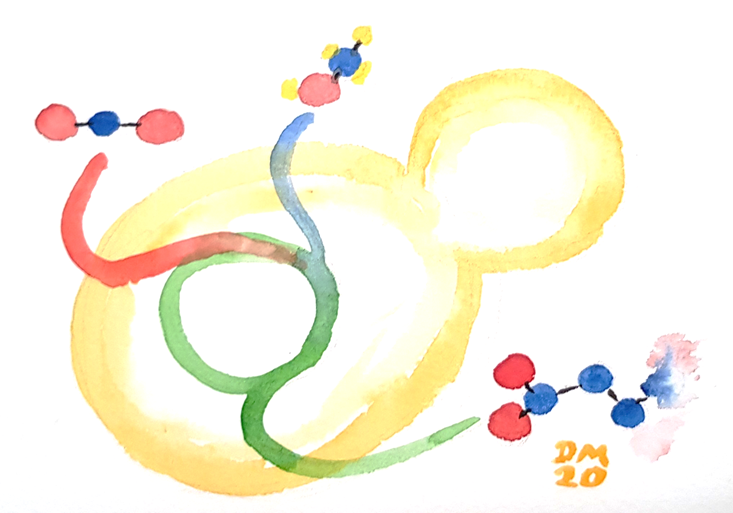Alternative pathway design for the mixotrophic production of chemicals from CO2 in Pichia pastoris
SUPERVISOR: Diethard MATTANOVICH
PROJECT ASSIGNED TO: Golnaz MEMARI
Autotrophy and mixotrophy in industrial strains bear the potential to contribute to the mitigation of climate change, and they are therefore of a great interest towards a more sustainable production of biochemicals.
In previous studies, functional autotrophy was engineered in yeasts by integrating the Calvin-Benson-Bessham (CBB) cycle in Pichia pastoris (Gassler et al. 2020), and similarly in Escherichia coli (Gleizer et al. 2019), allowing growth on CO2 as the sole carbon source. The autotrophic P. pastoris strain uses methanol for energy supply. In this project, we aim to design alternative pathways for assimilation of both CO2 and methanol for the conversion of CO2 into value-added compounds. Using methanol in both assimilatory and dissimilatory pathways lowers the overall methanol demand (Steiger et al. 2017). A blueprint for such a mixotrophic pathway is the bacterial serine cycle and modifications thereof (Yu and Liao 2018).
By using metabolic engineering and synthetic biology methods such as Golden Gate assembly (Prielhofer et al. 2017) and CRISPR-Cas9, we are aiming to design thermodynamically feasible and energetically favourable pathways for the production of oraganic acids from a mixed feed of methanol and CO2. For this purpose, additional enzymatic loops will be added to the serine cycle by either introducing bacterial genes or activating native yeast pathways. Functionality of the novel cyclic pathways will be assessed by the capacity to produce the target molecules and intermediates from methanol and CO2. Engineered strains will be characterized in small scale and bioreactor cultivations.

References:
Gassler T. et al. 2020. The industrial yeast Pichia pastoris is converted from a heterotroph into an autotroph capable of growth on CO2. Nature Biotechnology 38: 210-216.
Gleizer S, Ben-Nissan R, Bar-On YM, Antonovsky N, Noor E, Zohar Y, Jona G, Krieger E, Shamshoum M, Bar-Even A, Milo R. 2019. Conversion of Escherichia coli to Generate All Biomass Carbon from CO2. Cell. 179:1255-1263.e12.
Prielhofer R., et al. GoldenPiCS: A Golden Gate-derived modular cloning system for applied synthetic biology in the yeast Pichia pastoris. BMC Systems Biology 11: 123.
Steiger MG, Mattanovich D, Sauer M. 2017. Microbial organic acid production as carbon dioxide sink. FEMS Microbiol Lett. 364(21). Yu H, Liao JC. 2018. A modified serine cycle in Escherichia coli coverts methanol and CO2 to twocarbon compounds. Nat Commun. 9(1):39
